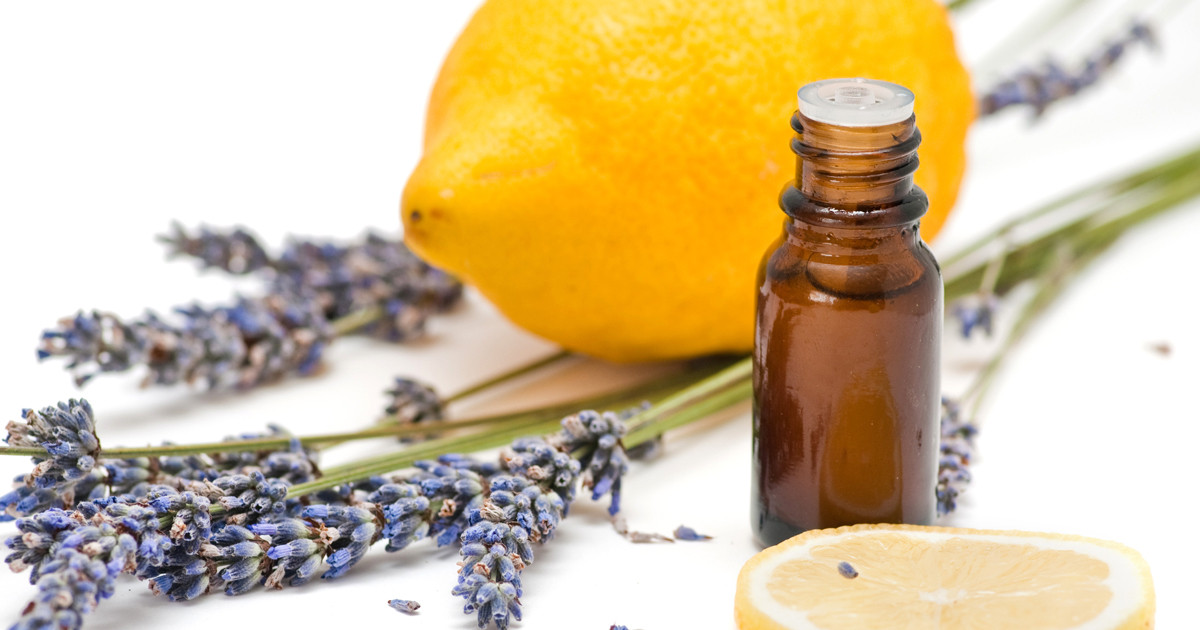Essential oils: Do they work? Are they safe?

Whether you use them or avoid them, essential oils have entered the public consciousness. There is one thing everyone agrees on: Essential oils are extremely concentrated. Essential oils are super-versions of normal plants:
- 50 lemons go into one 15 mL bottle of lemon essential oil
- One drop of peppermint essential oil is equivalent to 26 cups of peppermint tea
- Three pounds of lavender flowers go into one 15 mL bottle of lavender essential oil
Do these high concentrations cause incredible effects? Or are they incredibly dangerous? See what pharmacist Ally Dering-Anderson, PharmD, says about the safety and usefulness of essential oils.
Essential oil aromas affect your emotions
Dr. Dering-Anderson evaluates essential oils based on research, saying, "I look at studies with a critical eye to see if they make sense. Some quality controlled studies show essential oils create a measurable effect for some people. The primary evidence is aromatherapy for mental health."
For example, floral scents can change your perspective to be less negative and more peaceful. Citrus oils (like lemon, orange and grapefruit) can make you feel energized or joyful. And according to some studies, the smell of lavender is useful in helping people sleep. Dr. Dering-Anderson will cover these effects and more at the 23rd annual Omaha Women's Health & Wellness Conference. The online conference is free to the public.
Potent treatment or poison? It depends
Any substance can be toxic if you take too much of it – even natural substances like water or vitamins are toxic in high doses.
Dr. Dering-Anderson warns of the danger of ingesting essential oils. "Where folks get into trouble with oils is other than smelling them," she says. "Essential oils are not safe to rub on your skin or ingest."
Toxicologist Ron Kirschner, MD, also warns of their danger. "Ingesting essential oils like camphor, eucalyptus oil, tea tree oil or pine oil has been associated with changes in mental states and seizures. Ingesting lavender oil can cause severe allergic reactions and pennyroyal oil can give you toxic liver damage."
Dr. Kirschner is the medical director of the Nebraska Regional Poison Center, which sees these effects firsthand. Last year, a 4-year-old girl needed emergency care after ingesting one ounce of a homemade skincare mixture of birch oil, coconut oil and water. Two hours later, the girl was taking 40 breaths a minute and vomiting. She needed dialysis to remove the toxic component of the birch oil.
"One of the more dangerous categories of essential oils are the ones with salicylate, like birch oil and wintergreen oil," says Dr. Kirschner. Salicylate is the active ingredient in aspirin. Too much of it causes a medical emergency, like what happened with the 4-year-old girl. In one study, Dr. Kirschner found that out of 17 salicylate-containing essential oil products, only one product label mentioned that salicylate was inside.
Essential oils are highly concentrated, so it's easy to accidentally use too much.
Essential oil safety:
- Dilute essential oils in a cream or carrier oil like jojoba oil. Avoid using them "neat" – applying the essential oil directly to skin without diluting – as this can cause chemical burns
- Never vape essential oils. Vaping superheats essential oils, converting them to compounds which can cause e-cigarette or vaping associated lung injuries (EVALI)
- Never ingest (eat) essential oils. The body absorbs these concentrated substances very quickly, which can lead to a toxic reaction like vomiting, seizures or vertigo
"Diluted essential oils are generally safe to use on your hands, feet or legs, and rarely your face," says Dr. Dering-Anderson. "But the one thing you should never do is put essential oils on your mouth, ears, nose or genitals. These are sensitive mucous membranes." You can damage, numb or irritate mucous membranes very easily.
Where to go for trustworthy information
"Essential oils fall into a regulatory gray area," Dr. Kirschner says. "They're not foods or cosmetics, or even dietary supplements, since they're not intended for ingestion." The FDA does not regulate them, so it's up to essential oil producers to label products accurately and include warnings. This doesn't always happen.
Dr. Dering-Anderson recommends you ask your pharmacist about which essential oils are safe for use and in what way. She will be giving a free online presentation about Complementary Alternative Medical (CAM) therapies, including essential oils, at the annual Omaha Women's Health & Wellness Conference on Oct. 9. Registration closes Oct. 2, so sign up soon.







